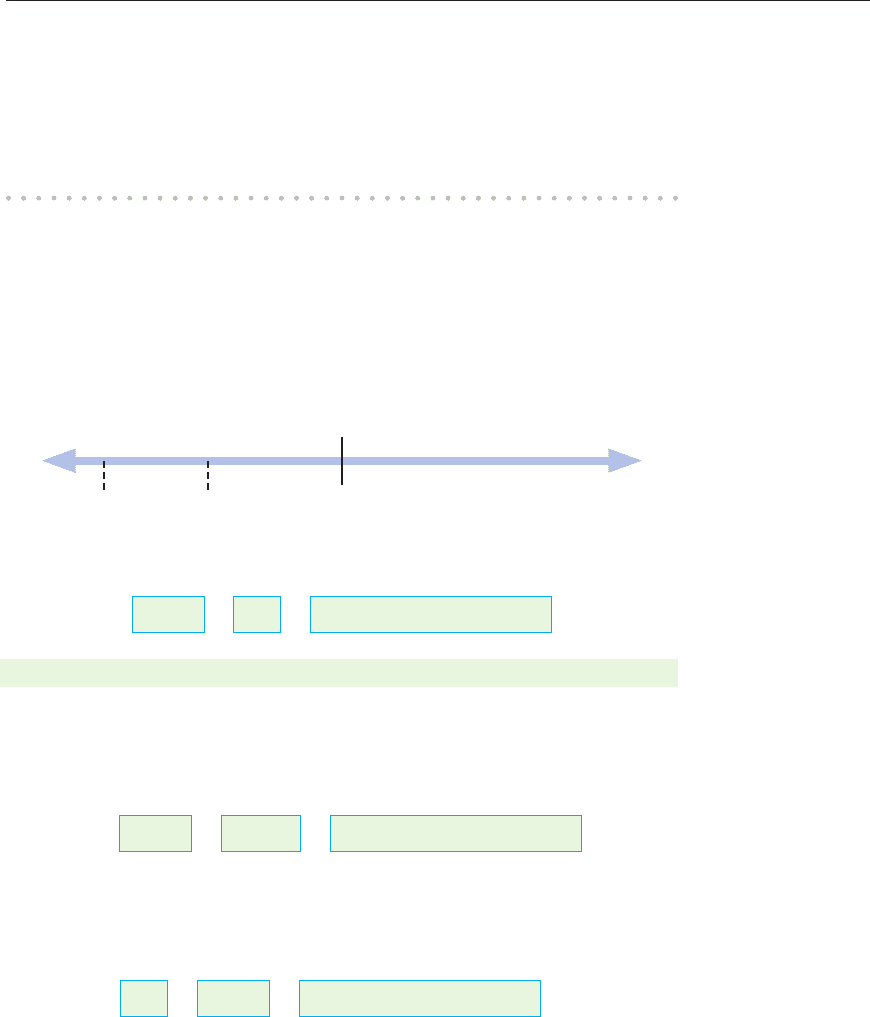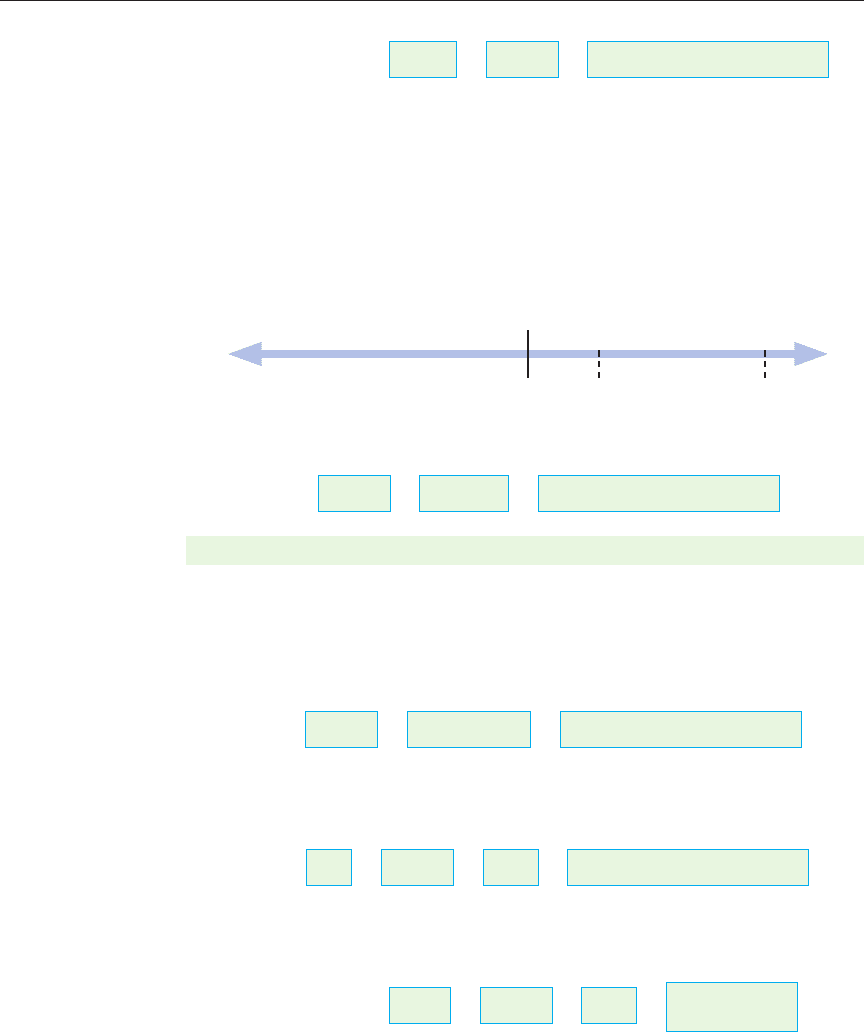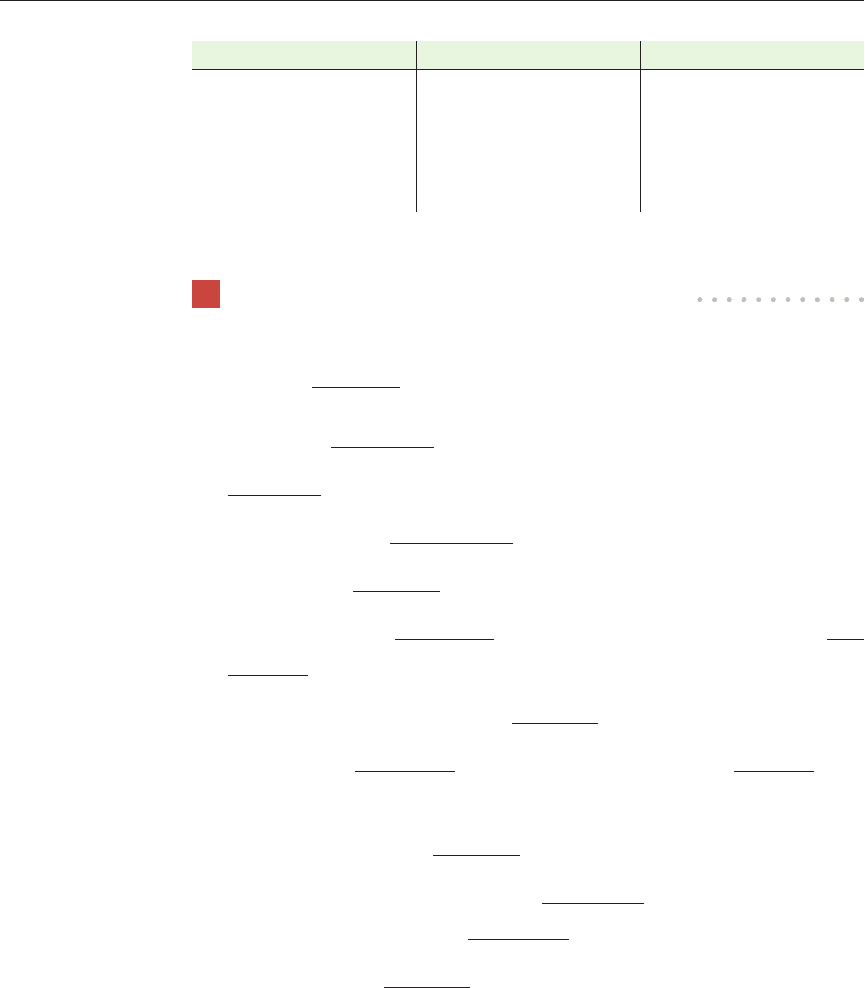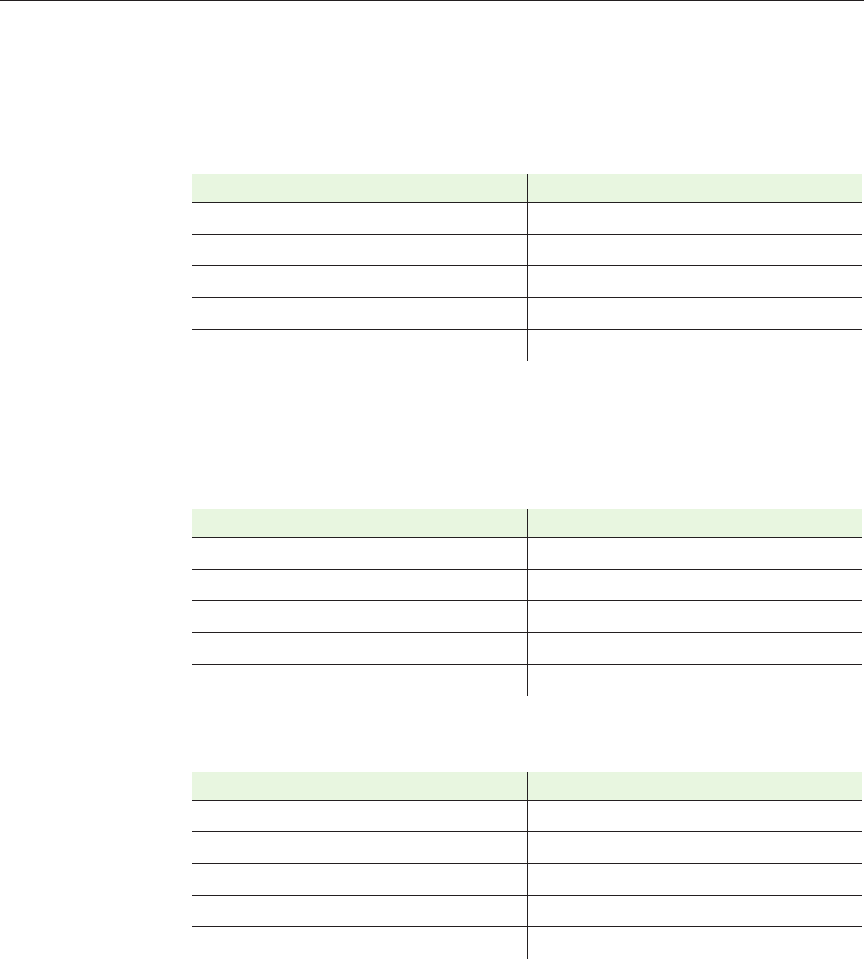Anker Susan. Real Essays with Readings with 2009 MLA Update
Подождите немного. Документ загружается.


EDITING ESSAYS
Chapter 33 • Formal English and ESL 607
8. The players make sure to emphasize the enjoyment of each other’s
company.
9. They keep it from getting overly competitive.
10. Their club develops a devoted following.
The Past Perfect
Use the past perfect to describe situations that began and ended before
some other situation happened.
PRESENT
PAST (now) FUTURE
ate trip to movies
I had eaten before I went to the movies.
Statements.
subject
+
had
+
past participle of base verb
PRESENT PERFECT PAST PERFECT
Julia has fi nished the test. Julia had fi nished the test before I started.
We have voted. We had voted before the crowds arrived.
Negatives.
subject
+
had not
+
past participle of base verb
Julia had not fi nished her test before I started.
We had not voted before the crowds arrived.
Questions.
had
+
subject
+
past participle of base verb
Had Julia fi nished the test before I started?
Had they voted before the crowds arrived?
ANK_47574_33_ch33_pp582-630 r5 ko.indd 607ANK_47574_33_ch33_pp582-630 r5 ko.indd 607 10/29/08 10:22:08 AM10/29/08 10:22:08 AM

EDITING ESSAYS
608 Part Five • Other Grammar Concerns
Negative questions.
hadn’t
+
subject
+
past participle of base verb
Hadn’t Julia fi nished the test before I started?
Hadn’t they voted before the crowds arrived?
The Future Perfect
Use the future perfect to describe situations that begin and end before
another situation begins.
PRESENT
PAST (now) FUTURE
shower Lee’s arrival
I will have showered before Lee comes.
Statements.
subject
+
will have
+
past participle of base verb
PRESENT PERFECT FUTURE PERFECT
The teacher has graded the tests. The teacher will have graded the
tests before she returns them.
The runners have fi nished the race. The runners will have fi nished the
race before rush hour.
Negatives.
subject
+
will not have
+
past participle of base verb
The teacher will not have graded the tests before she returns them.
The runners will not have fi nished the race before rush hour.
Questions.
will
+
subject
+
have
+
past participle of base verb
Will the teacher have graded the test before she returns them?
Will the runners have fi nished the race before rush hour?
Negative questions.
won’t
+
subject
+
have
+
past participle
of base verb
Won’t the teacher have graded the test before she returns them?
Won’t the runners have fi nished the race before rush hour?
ANK_47574_33_ch33_pp582-630 r5 ko.indd 608ANK_47574_33_ch33_pp582-630 r5 ko.indd 608 10/29/08 10:22:08 AM10/29/08 10:22:08 AM

EDITING ESSAYS
Chapter 33 • Formal English and ESL 609
PRACTICE 13 USING THE PAST AND FUTURE
PERFECT TENSES
On a separate piece of paper, rewrite each of the sentences below in four
forms — past perfect, past-perfect negative, future perfect, and future-perfect
negative. Use the phrase(s) provided in parentheses if necessary for meaning.
EXAMPLE: The train has left the station. (before I got
there/before I get there)
(past perfect)
The train had left the station before I got
there.
(past-perfect negative)
The train had not left the station before I got
there.
(future perfect)
The train will have left the station before I get
there.
(future-perfect
The train will not have left the station before
negative)
I get there.
1. Jorge has fi nished his ice cream. (by closing time)
2. The bears have gone to sleep. (after their morning feeding/before their morn-
ing feeding)
3. Selena has called the doctor. (after taking her temperature)
4. The race has ended. (almost before it started/almost before it starts)
5. The battery has failed. (before we got a new one/before we get a new one)
6. Our team has played harder. (after hearing that our rival lost their game/after
hearing that our rival loses their game)
7. You have completed your research. (when I turned in my paper/when I turn
in my paper)
8. Victor has arranged a summer internship. (by the end of the semester)
9. He has eaten his main course. (after his dessert)
10. The new statistics have arrived. (in time to include them in our report)
ANK_47574_33_ch33_pp582-630 r5 ko.indd 609ANK_47574_33_ch33_pp582-630 r5 ko.indd 609 10/29/08 10:22:09 AM10/29/08 10:22:09 AM

EDITING ESSAYS
610 Part Five • Other Grammar Concerns
Gerunds and Infi nitives
A gerund is a verb form that ends in -ing and acts as a noun. An infi ni-
tive is a verb form that is preceded by the word to. Gerunds and infi nitives
cannot be the main verbs in sentences; each sentence must have another
word that is the main verb.
GERUND I like running.
[Like is the main verb, and running is a gerund.]
INFINITIVE I like to run.
[Like is the main verb, and to run is an infi nitive.]
How do you decide whether to use a gerund or an infi nitive? The
decision often depends on the main verb in a sentence. Some verbs can
be followed by either a gerund or an infi nitive.
Verbs That Are Followed by Either a Gerund
or an Infi nitive
begin forget like remember stop
continue hate love start try
Sometimes, using an infi nitive or gerund after one of the verbs listed
in the preceding box results in the same meaning.
GERUND I love listening to Ray Charles.
INFINITIVE I love to listen to Ray Charles.
Other times, however, the meaning changes depending on whether
you use an infi nitive or a gerund.
INFINITIVE Mario stopped to smoke.
[This sentence means that Mario stopped what he was doing and smoked a
cigarette.]
GERUND Mario stopped smoking.
[This sentence means that Mario no longer smokes cigarettes.]
■ To improve your
ability to write and
speak standard English,
read magazines and
your local newspaper,
and listen to televi-
sion and radio news
programs. Read maga-
zines and newspaper
articles aloud;
it will help your
pronunciation.
ANK_47574_33_ch33_pp582-630 r5 ko.indd 610ANK_47574_33_ch33_pp582-630 r5 ko.indd 610 10/29/08 10:22:09 AM10/29/08 10:22:09 AM

EDITING ESSAYS
Chapter 33 • Formal English and ESL 611
Verbs That Are Followed by an Infi nitive
agree decide need refuse
ask expect offer want
beg fail plan
choose hope pretend
claim manage promise
Tony expects to get a raise.
Lana plans to adopt a child.
Verbs That Are Followed by a Gerund
admit discuss keep risk
avoid enjoy miss suggest
consider fi nish practice
deny imagine quit
Football players avoid injuring themselves.
Imagine sitting on a beach in Hawaii.
Don’t use the base form of the verb when you need a gerund or an
infi nitive.
INCORRECT, BASE VERB CORRECT, GERUND CORRECT, INFINITIVE
Cook is my favorite
activity.
[Cook is the
base form of the verb, not
a noun; it can’t function
as the subject of the
sentence.]
Cooking is my favorite
activity.
[Cooking is a
gerund that can serve
as the subject of the
sentence.]
Play piano is fun. Playing piano is fun.
My goal is graduate
from college.
My goal is to graduate
from college. [To gradu-
ate is an infi nitive that can
serve as the subject of the
sentence.]
continued
ANK_47574_33_ch33_pp582-630 r5 ko.indd 611ANK_47574_33_ch33_pp582-630 r5 ko.indd 611 10/29/08 10:22:09 AM10/29/08 10:22:09 AM

EDITING ESSAYS
612 Part Five • Other Grammar Concerns
INCORRECT, BASE VERB CORRECT, GERUND CORRECT, INFINITIVE
I need take vacation.
[There is already a verb,
need, in the sentence, so
there can’t be another
verb that shows the action
of the subject, I.]
I need to take a
vacation.
PRACTICE 14 USING GERUNDS AND INFINITIVES
Fill in the blanks with the correct gerund or infi nitive.
EXAMPLE:
Drinking
(Drink) coffee is part of Alex’s morning ritual.
1. He expects (start) every day with a fresh cup.
2. (Make) fresh coffee takes him a few minutes every morning.
3. He does not want (wake up) any earlier than necessary.
4. But he enjoys (feel) alert and lively in the morning.
5. So he has decided (take) the extra time in the morning
(prepare) his coffee.
6. At one time, Alex tried to avoid (have) coffee in the morning.
7. He soon came (regret) this because he disliked (feel)
sleepy all morning.
8. In this way, he learned (use) coffee as his morning stimulant.
9. In the evenings, though, he refuses (drink) coffee because it
sometimes keeps him from (sleep) through the night.
10. Instead, he tends (ask) for decaffeinated coffee at night.
ANK_47574_33_ch33_pp582-630 r5 ko.indd 612ANK_47574_33_ch33_pp582-630 r5 ko.indd 612 10/29/08 10:22:09 AM10/29/08 10:22:09 AM

EDITING ESSAYS
Chapter 33 • Formal English and ESL 613
PRACTICE 15 USING GERUNDS AND INFINITIVES
Correct the sentences that use a base verb when a gerund or an infi nitive is
needed. Three of the sentences are correct.
spending
EXAMPLE: Gabriella enjoys spend time with her roommate Paige.
1. They both prefer listen to the same kind of music.
2. Neither of them wants go to bed early.
3. Like Paige, Gabriella delays do her homework as long as she can.
4. Each of them also dislikes practicing on her musical instrument.
5. But Gabriella admits notice one thing that bothers her about Paige.
6. Paige cannot bear arriving anywhere on time.
7. On the other hand, Gabriella refuses be late ever.
8. At fi rst, Gabriella attempted to force Paige to be on time.
9. After a while, however, Gabriella has learned accept Paige’s habitual
lateness.
10. Gabriella now realizes that being in a relationship often includes tolerate
unimportant differences.
Modal Auxiliaries
Modal verbs are helping verbs that express the writer’s attitude about an
action. There aren’t many modal auxiliaries to learn — just the ones in the
chart that follows.
MODAL AUXILIARIES MEANING EXAMPLE
can ability I can sing.
could possibility I could sing.
may permission You may sing.
^
continued
ANK_47574_33_ch33_pp582-630 r5 ko.indd 613ANK_47574_33_ch33_pp582-630 r5 ko.indd 613 10/29/08 10:22:09 AM10/29/08 10:22:09 AM

EDITING ESSAYS
614 Part Five • Other Grammar Concerns
MODAL AUXILIARIES MEANING EXAMPLE
might possibility I might sing.
must obligation I must sing.
should advice or expectation I should sing.
will intention I will sing.
would (often with the
verb like)
desire, intention I would sing.
For this section, you will need to refer to the charts on pages 485–88,
which give you statements, negatives, and questions for all of the modal
auxiliaries.
Should/Must
As you see in the chart, should means that an action is expected or recom-
mended. Must means that an action is required; it is an obligation.
Tomorrow, I should go to class. [The writer has a choice about whether
to go or not.]
Tomorrow, I must go to class. [The writer has no choice about going
to class: It is necessary.]
Read the two sentences that follow, and explain their meaning.
My grandmother should eat more.
My grandmother must eat more.
Two common student errors when using should or must are the following:
Using the Infi nitive Instead of the Base Verb. The infi nitive is to + the
base verb. The base verb does not have to before it. When using should and
must, use the base verb.
INCORRECT CORRECT
Children should to obey their
parents.
Children should obey their parents.
They must to work late. They must work late.
Using Two Modals. Using two modal auxiliaries together in a sentence is
incorrect in English. Use only one.
ANK_47574_33_ch33_pp582-630 r5 ko.indd 614ANK_47574_33_ch33_pp582-630 r5 ko.indd 614 10/29/08 10:22:09 AM10/29/08 10:22:09 AM

EDITING ESSAYS
Chapter 33 • Formal English and ESL 615
INCORRECT CORRECT CORRECT
I must should study
harder.
I must study harder. I should study harder.
Could/ Would
Could means a possibility that an action will happen; would means an in-
tention that an action happen. The meanings are similar, but the words
are not interchangeable.
Gina could go to bed early. [Gina has the ability to go to bed early; it is pos-
sible that she will.]
Gina would like to go to bed early. [Gina has the wish and intention to go to
bed early, but she might not be able to.]
Read the two sentences that follow, and explain their meaning.
Next semester, I could take two courses.
Next semester, I would like to take two courses.
Two common student errors when using could or would are the following:
Using a Gerund Instead of an Infi nitive or the Base Verb. A gerund is a
verb form that ends in -ing and functions as a noun in a sentence. When
using the modal auxiliary could, follow it with the base verb. When using
would, follow it with the infi nitive (to + base verb), not a gerund.
INCORRECT CORRECT
Today, I could winning the lottery. Today, I could win the lottery.
I would like graduating in 2010. I would like to graduate in 2010.
Omitting the Modal. Just as you don’t want to use two modal auxiliaries
together in a sentence, you also don’t want to forget a modal when it is
required to show intention.
INCORRECT CORRECT CORRECT
Next month, I like to
take a vacation.
Next month, I would
like to take a vacation.
Tomorrow, I help you. Tomorrow, I could help
you.
Tomorrow, I can help
you.
ANK_47574_33_ch33_pp582-630 r5 ko.indd 615ANK_47574_33_ch33_pp582-630 r5 ko.indd 615 10/29/08 10:22:10 AM10/29/08 10:22:10 AM

EDITING ESSAYS
616 Part Five • Other Grammar Concerns
Modals and Present-Perfect Verbs
Present-perfect verbs use the helping verb has or have and the past parti-
ciple of the base verb. When the sentence has a modal auxiliary before the
verb, the helping verb is always have, not had.
PRESENT-PERFECT VERB MODAL AND PRESENT-PERFECT VERB
I have called an ambulance. I could have called an ambulance.
You have lied to me. You may have lied to me.
Kyle has gone to the store. Kyle might have gone to the store.
We have visited the hospital. We should have visited the hospital.
They have brought a gift. They must have brought a gift.
Three common problems students have when using modals and
present-perfect verbs are the following:
Using Had Instead of Have. Always use have.
INCORRECT CORRECT
Sharon could had won. Sharon could have won.
I might had got that job. I might have gotten that job.
You should had seen the show. You should have seen the show.
We would had missed the bus. We would have missed the bus.
They must had seen the accident. They must have seen the accident.
Omitting Have.
INCORRECT CORRECT
I could worked last night. I could have worked last night.
He might walked home. He might have walked home.
You should answered the phone. You should have answered the phone.
We would liked to go. We would have liked to go.
They must planned the surprise. They must have planned the surprise.
Using the Past-Perfect Verb Have. The verb have can be a helping verb
with the base verb in the past perfect, and it can also be the main verb.
When it is the main verb, use the past-participle form of the verb: had.
This is what you do with all modals and past-perfect verbs (modal + helping
ANK_47574_33_ch33_pp582-630 r5 ko.indd 616ANK_47574_33_ch33_pp582-630 r5 ko.indd 616 10/29/08 10:22:10 AM10/29/08 10:22:10 AM
